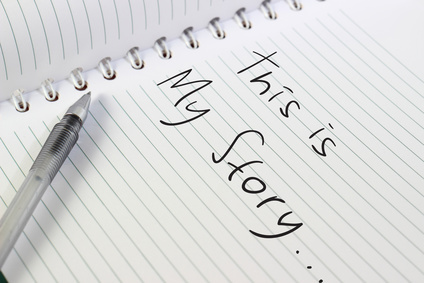Loss and trauma can show up in our lives in many ways. People die, relationships end, jobs get eliminated, freak accidents occur, and illness happens. If all that wasn't enough, our bodies eventually change and sag in ungodly places as we age. Loss is inevitable.
So how do we move through one of the most challenging experiences of being human?
The most effective way to heal is the become intentional about rebuilding our lives.
By creating a plan of action around our healing and not just crossing our fingers, hoping we will eventually feel better; we signal to the Universe we are committed to living life fully despite our loss. The goal is not to be who we were before the experience of loss occurred, but to equalize and find a new normal.
Below are 10 ways to heal loss and trauma by being intentional starting today.
1.Create a daily ritual to connect to spirit.
Coming from the perspective that a kind and benevolent divine energy is there for us to plug into at any time is soothing. Knowing God wants us to heal can help us through the process. Prayer and meditation have also been proven to elicit the relaxation response.
2.Spend time in nature.
There are countless reasons it's healthy to park yourself on the beach or walk through a nature trail in the mountains. When we surround ourselves with natural beauty it makes us feel a part of something bigger. Also, the electrons we receive by walking barefoot in the grass or sand heal us on multiple levels. Earthing is said to alleviate inflammation, reduces stress, and normalize the body's biological rhythms.
3.Implement intentional breathing exercises.
Our breath is our life line. During times of stress many of us become thoracic breathers, meaning we breathe from our chest. This type of breathing increases blood pressure and ignites our fight or flight response. Implementing a simple breathing exercise will help us heal and illicit the relaxation response.. There are many different types of breathing exercises, but I prefer an easy, yet very effective one. It's called box breathing. Simply breathe in from your nose into your belly to a count of four. Hold your breath for four seconds and then release the breath gently through your mouth to a count of four. Hold the exhale for another count of four. Repeat several times.
4.Move your body.
It seems counterintuitive to move our body when all we feel like doing is laying on the couch. Grief and trauma can get trapped in the body if we don't release it. One of the best ways to release this stagnant energy and heal depression and/or anxiety is to exercise. Walk, dance, do whatever makes you happy and gets your endorphins flowing.
5.Read inspirational books, magazines and blogs.
Connecting with other people's words that have been through what you are going through can help give you not only hope, but solid tools to work through the process of healing. Inspiring stories help elevate us and give us energy to move forward. Knowing you are not alone on your journey can bring great comfort.
6.Own your story by journaling and write letters you don't send.
One of the greatest ways we can get in touch with what is really going on inside of us is to write it out. Put pen to paper and pour your heart out. Journaling is a great tool to tap into our inner voice and gain insight. Writing letters to other people (dead or alive) is another amazing tool to get the pain stuck inside out. Write with wild abandon and either burn the letter or rip it up. Write what you need to release.
7.Pamper yourself.
Throw in a ten minute back massage at the nail salon. Personal self-care is a huge part of being intentional around healing. When we have been through trauma many times the last thing we feel like doing is combing our hair and slapping on lipstick, but these very things will give us a sense of life moving forward. Owning our value and worth as a human being is expressed by how we treat ourselves. Be kind to you.
8.Cry it out.
Grief can feel scary. Tears will not destroy you, but will support you in moving through the grieving process. Give yourself permission to feel your loss thoroughly.
9.Practice self-acceptance.
Your healing journey will have highs and lows. Just when you think you are equalizing in your new normal a wave of grief will catch you off guard and knock you out of balance again. Remind yourself what you are feeling is normal. Grieving is a nonlinear process. Talk lovingly to yourself. You are doing the best you can.
10.Look for the gifts.
Looking for the gifts in our painful experiences, even the unimaginable, is the Holy Grail to healing. It is also the hardest. It may seem counterintuitive to find the light from the darkest of moments, but it is the very thing that sets us free. When we open ourselves to looking for the treasures within the hurt, it can make the unbearable, bearable. This perspective can shift us from feeling victimized to owning our power.
While there is no better person to support us in healing than ourselves, it is also very imperative to seek out counseling and support groups when needed. Healing from trauma and loss of any kind is a journey. There are no quick fixes, but being intentional and proactive around our healing will one day lead us back to wholeness, peace, and joy for life.



